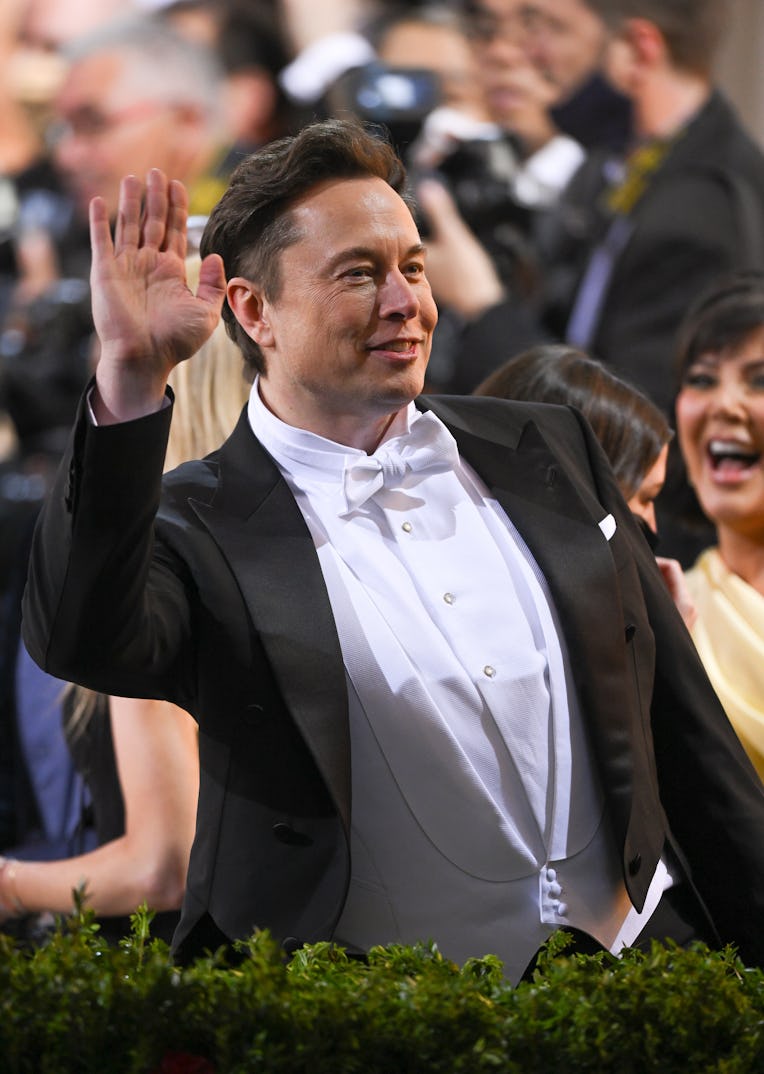Elon Musk: One Sec, I Am Looking Into Bots
The tech CEO seems to be slowly backing away from his Twitter deal

Elon Musk is waffling on his Twitter buyout. Early Friday morning, he announced that he had put the deal “temporarily on hold,” pending a review of the social media platform’s “fake accounts.”
The announcement, which came by way of a tweet, linked to an 11-day-old Reuters article about a federal filing Twitter made earlier this month. The federal filing claimed that spam bots accounted for less than five percent of its 229 million users (largely due to Twitter’s content moderation efforts, which Musk has expressed interest in significantly pulling back). Apparently Musk — never one to make a rash or uninformed business decision — wants to make sure that this is true.
According to MarketWatch, Twitter stock dropped by 10.5 percent in premarket trading after Musk’s tweet — putting “the stock on track to open at the lowest price seen during regular-session hours” since April 4, when Musk first went public about his 9.2 percent stake. Musk evidently noticed this. Two hours later he tweeted:
That oughta do it. This is interesting timing, to say the least. For one, Twitter’s bot disclosure came out a week and a half ago. Musk said publicly that he was concerned about “defeating the spam bots and authenticating all humans,” as early as April 25. Why hold the deal now?
One possible factor: for the past week, Twitter’s stock has been in for a bumpy ride. In April, Musk bid to buy the company at $54.20 a share, a price that Twitter has not gotten anywhere near for several weeks. And this past week, the market fell so hard it’s drawing comparisons to the pandemic crash of 2020; tech stocks in particular took the hardest hit. For the past five days, Twitter has sunk from a high of around $49.15 to a low of $40.15. In other words, the company Musk is poised to pay $44 billion for has been worth, depending on when you asked, anywhere from 10 to 26 percent less.
This coincided with news that Twitter was implementing a hiring freeze and that CEO Parag Agrawal had fired two of its top executives.
Around the same time, Tesla had been doing even worse. The electric car and subpar surfboard company’s stock took a hit after Musk announced the Twitter deal, largely out of shareholder fear that Musk would sell his shares to finance the deal. As of yesterday, according to MarketWatch, Tesla’s stock was down 36.4 percent, since Musk announced his Twitter stake on April 4. But after the hold announcement? Tesla’s premarket trading price soared by 6.1 percent. Not bad for this market.
The terms of the Twitter deal require Musk to pay a $1 billion penalty fee if he backs out of the contract. But last month, in a Reuters opinion piece titled “Elon Musk probably won’t buy Twitter,” reporters Gina Chon and Lauren Silva Laughlin argued that “If Tesla’s stock bounces back – likely if the Twitter deal falls away – the $40 billion of recouped wealth would more than make up for the break fee.”
Why does Musk care about spam bots so much? Maybe it’s a joke, as Matt Levine tweeted this morning. Maybe it has something to do with the fact that so many bots are impersonating Musk specifically. Maybe it’s a negotiating tactic to get a better deal, as some investors have speculated he might. Musk has, so far, not even come close to raising the promised $44 billion he’s pledged to fork over. Or maybe it’s a very transparent excuse to worm his way out of the sale, as he’s done many, many times in the past.